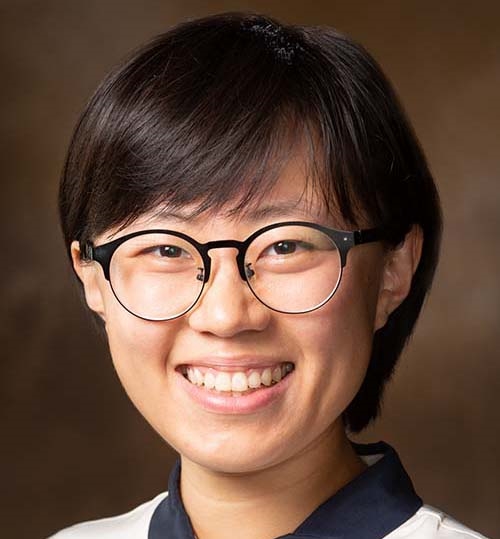Warming Climate Intensifies Summer Drought in Parts of U.S., Study Finds
FAYETTEVILLE, Ark. – Climate change is amplifying the intensity and likelihood of heatwaves during severe droughts in the southern plains and southwest United States, according to a new study by a University of Arkansas researcher.
Linyin Cheng, assistant professor of geosciences, used data from the National Center for Atmospheric Research's Community Earth System Model to study summer droughts that occurred both before and after the Industrial Revolution. Cheng and colleagues from the National Oceanic and Atmospheric Administration and universities in China and Colorado ran simulations to assess how, and by how much, human-induced climate change affects summer heatwaves in the contiguous United States. The study was published in the Journal of Climate.
The researchers found that in places with low moisture in the soil, such as the southern plains and southwest, higher temperatures brought about by climate change led to an increased "coupling" of land and atmosphere, which further increased the severity of heatwaves. In places with more moisture in the soil, such as the northeast, they found no appreciable coupling and therefore no contribution to heatwave intensification.
"Our analysis of climate simulation finds that summertime drought-heatwave relationships change significantly over the southern and southwest U.S. due to man-made climate change since the late 19th century," said Cheng. "By contrast, the drought-heatwave relationship over northern U.S regions undergoes little change in the warmed climate."
The findings raise the idea of a self-reinforcing climate loop: as a region's climate becomes more arid due to climate change, droughts become hotter, further reducing soil moisture.
"Overall, these results indicate that strengthened land-atmosphere feedback is a significant physical driver for increasing occurrences of drought-related extreme heatwaves, particularly over the semi-arid and arid regions of the United States," the report states.
About the University of Arkansas: The University of Arkansas provides an internationally competitive education for undergraduate and graduate students in more than 200 academic programs. The university contributes new knowledge, economic development, basic and applied research, and creative activity while also providing service to academic and professional disciplines. The Carnegie Foundation classifies the University of Arkansas among fewer than 2.7 percent of universities in America that have the highest level of research activity. U.S. News & World Report ranks the University of Arkansas among its top American public research universities. Founded in 1871, the University of Arkansas comprises 10 colleges and schools and maintains a low student-to-faculty ratio that promotes personal attention and close mentoring.
Topics
Contacts
Linyin Cheng, assistant professor
Department of Geosciences
479-575-5569,
lc032@uark.edu
Bob Whitby, feature writer
University Relations
479-575-4737,
whitby@uark.edu
Headlines
Former U.S. Senator Mark Pryor to Receive Honorary Degree
The U of A will award an honorary degree to Mark Pryor, an alumnus and former U.S. senator, during its spring university commencement ceremony at 8:30 a.m. Saturday, May 11, in Bud Walton Arena.
Semiconductor Research and Fabrication Facility Celebrates Topping Out
The new facility will produce microelectronic chips made with silicon carbide, a powerful semiconductor that outperforms basic silicon in several critical ways, and allow testing of industry prototypes.
Kendyl Link Named Undergraduate Winner of Felix Christopher McKean Memorial Award
A senior involved in University Programs and Greek Life, Link's poem "Fish" will appear in Issue 9 of The Diamond Line, the U of A's undergraduate literary magazine, this spring.
Patitz Awarded NSF Grant for Research on DNA-Based Nanostructure Research
Matthew Patitz, associate professor, plans to construct nanoscale structures using DNA sequences designed to fold into elongated slats that then form complex geometries.
Interior Architecture Students Make Metropolis' Future100 List, Win Portfolio Competition
Isabel Provisor Lemery, one of three national winners, and Lacey Oxford, both students in the Department of Interior Architecture and Design, are featured among the Metropolis magazine's Future100.





